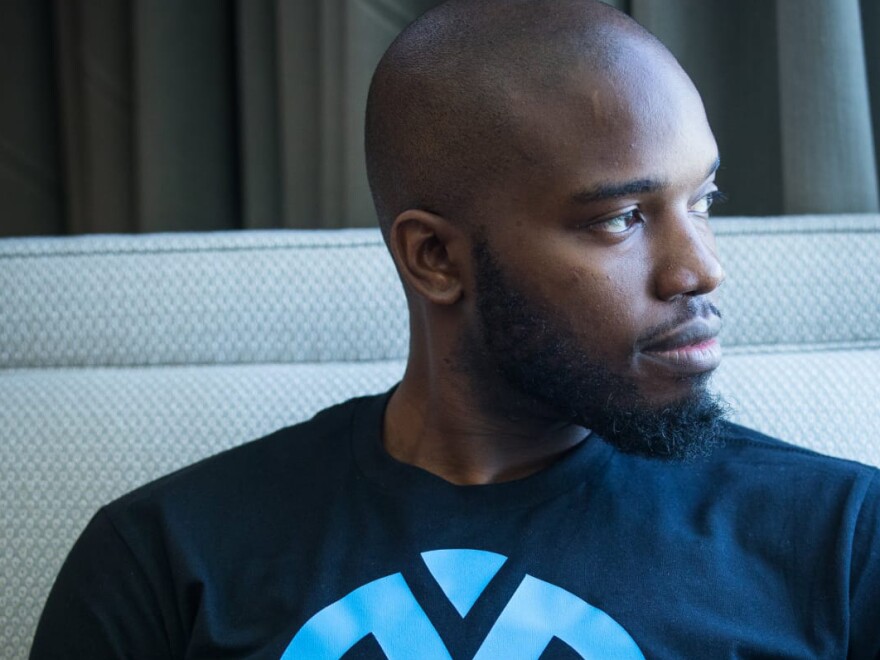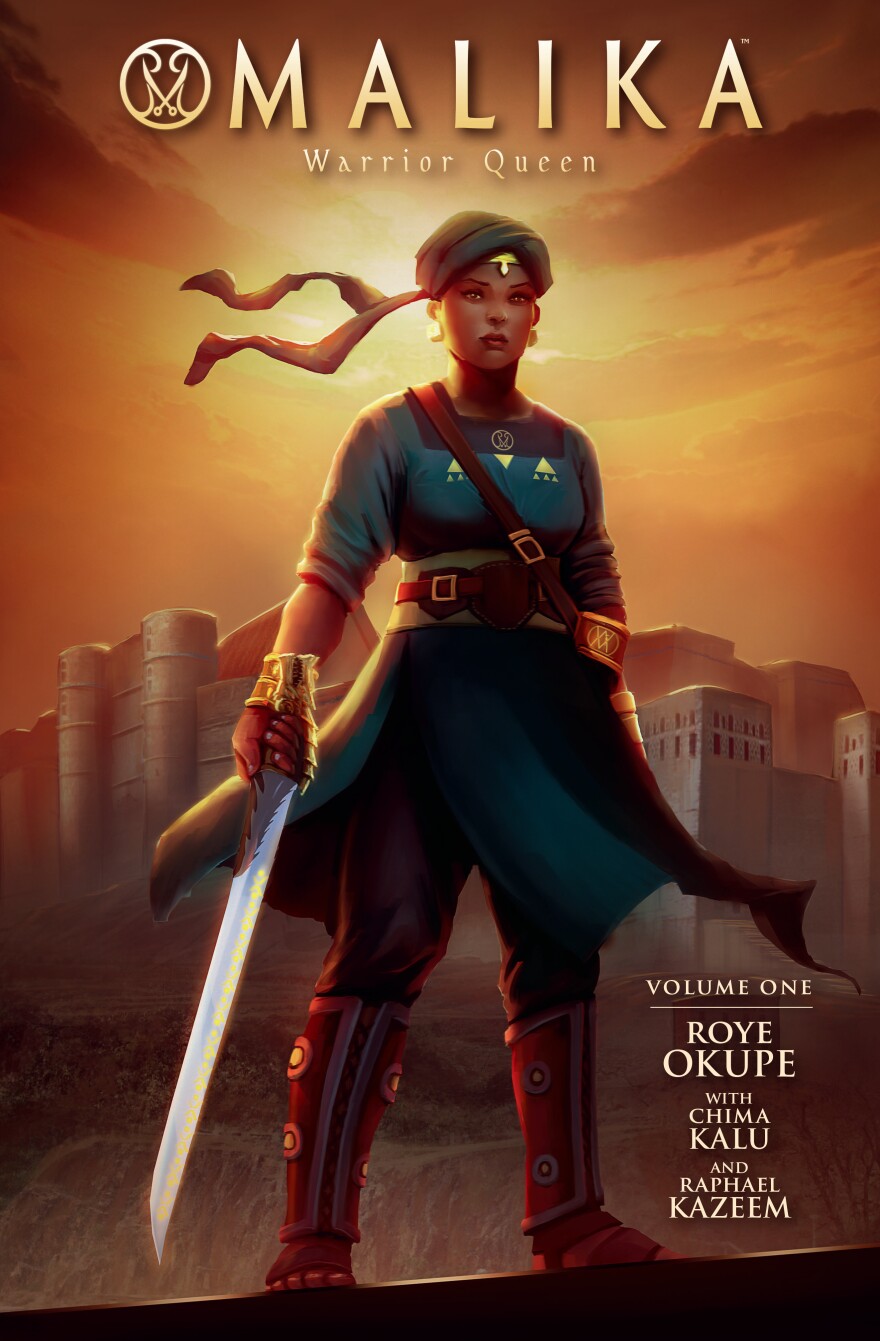Our Creators on the Cusp series brings you writers, artists, editors and publishers who are revolutionizing the world of comics and graphic novels. We'll introduce you to the troublemakers and boundary-pushers who're taking comics in once-unimaginable directions.

Born in Lagos, Nigeria, Roye Okupe has introduced American audiences to a new series of superhero comics incorporating African myth and history –- what he's dubbed the "YouNeek YouNiverse." After spending years bootstrapping his comics, in 2021 he signed an exclusive deal with Dark Horse Comics to publish 10 YouNeek titles.
Okupe spoke with me about creating Afrocentric comics for a global audience, shopping projects in Hollywood, and publishing his new book WindMaker Vol. 1.
You studied animation at George Washington University, where you got your degree, and at the Art Institute of Washington, right? I read that you created an animated trailer for an African superhero in the early 2000s, and one producer you showed it to said it might work if you changed the superhero's race. Is that true?
Yeah. ... This was before [2018's] Black Panther. This is, I believe, around 2013. There weren't a lot of people ... jumping on board to be part of projects that featured a Nigerian superhero or [took] place in Nigeria. ... I told him, "That defeats the purpose. The only reason why I'm so passionate about what I'm doing is because he's a character that looks like me and it features my culture. If I were to change that ... then I would be like everyone else."
As someone who grew up outside America, do you think there was anything to what that producer had to say? In other words, do you think the Black Panther phenomenon provided something that American audiences were already looking for, or did it convince American audiences that an African superhero was someone they could relate to?
I think not just an American audience, but a global audience has been ready for this for a while. [When] I decided to ... [turn] the animated short film into [a] trailer for the graphic novel ... I put that on Kickstarter in 2014, and I ... got funded in three days. Within six months ... that book, E.X.O.: The Legend of Wale Williams ... was featured on CNN, the BBC, Forbes, The Washington Post, The New York Times. ... I looked at the Kickstarter's backers, and I had people from Mexico, people from parts of Asia, people from Europe who had ordered these books.
Do you think comics readers have always been more open to superheroes from unfamiliar backgrounds than your typical American moviegoer? Or do you think you were able to succeed in comics because it's a cheaper medium, so it doesn't require as much of a risk?
If I had [through] some miracle been able to put together a lot of money and created an animated film ... who's to say that the animated film wouldn't have been successful in 2014? ... If I have to guess, I just think people in general were ready for that. I think for me, it's a medium that I could afford to do on my own, and tell my story in my way. That's why I went the comic-book route.
Which of your characters has been most successful in the U.S.?

If I were to say [which is most] financially successful, I would say Malika: Warrior Queen. That's a historical fantasy story that takes place in a pre-colonial West Africa. ... In terms of reach, it's Iyanu: Child of Wonder. ... Iyanu is the one that ... producers are looking at to adapt.
Dark Horse, your new publisher, is known for getting adaptations made, right?
Dark Horse is the perfect home for this. I have to give Dark Horse credit. A lot happened after the unfortunate incident with George Floyd — where a lot of people started to support Black businesses, and rightfully so. But Dark Horse approached me in 2019 ... when it wasn't like, "Okay ... let's see what Black businesses we can support." They really saw this as something that [they could] put [all their] resources behind and ... take to the next level.
Just now when you were talking, that was the second time you've equated your role as a Black creator with being African. How is being a Black creator the same as, and different from, being an African creator?
African mythology and culture is ... actually the icing on the cake. [I] create stories ... for a global audience. [Growing] up in Nigeria, I was able to see myself in Spider-Man. ... I want [people] in different parts of Asia, or South America, or the U.S., or Europe to be able to see this character and see themselves ... And then also, as a secondary effect ... be able to see what they don't necessarily see in mainstream media.
What's next for you? Can you give us any teasers about your next book?
WindMaker Vol. 1 [came] out April 20. ... It's a story about a guy that gets the spirit of a legendary protector reincarnated into himself. The twist is that our hero is actually the chief [of] security for a dictator of [his] country, so he has to decide what side he wants to play on. One of the things I try to talk about in the story is the price of blind loyalty. ... We all have to navigate that in our lives at some point in time.
Etelka Lehoczky has written about books for The Atlantic, The Los Angeles Review of Books and The New York Times. She tweets at @EtelkaL.
Copyright 2022 NPR. To see more, visit https://www.npr.org.



